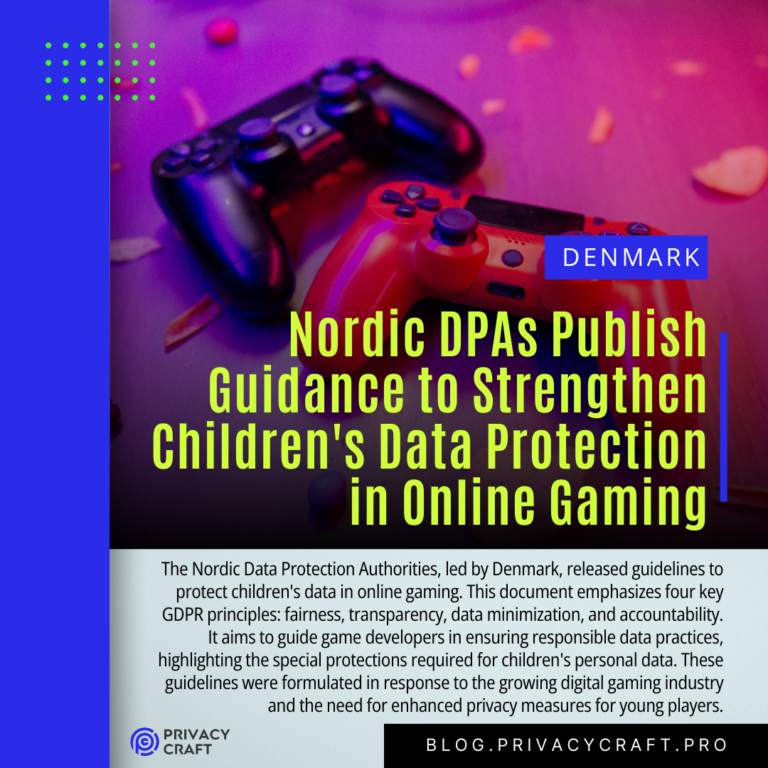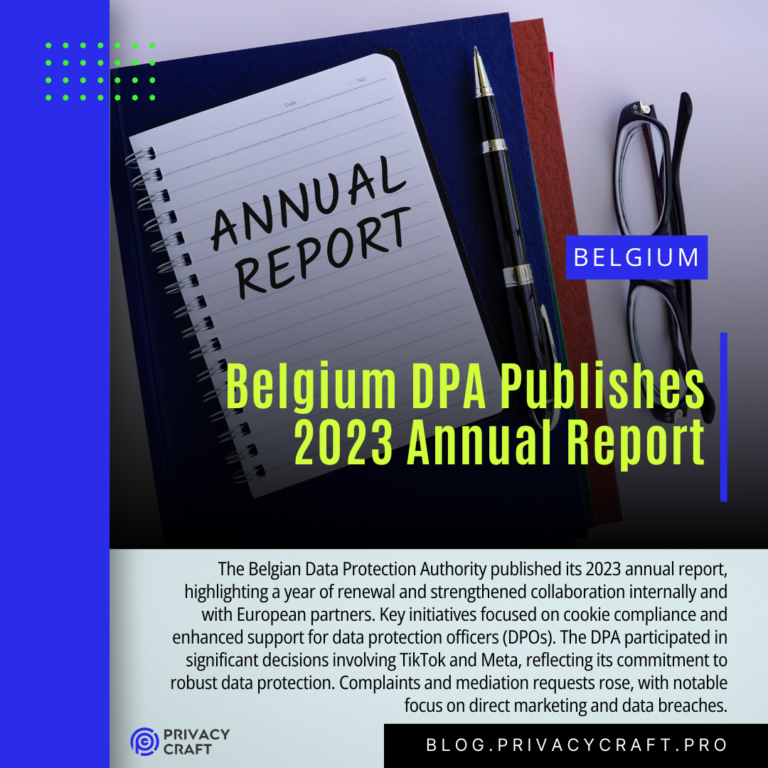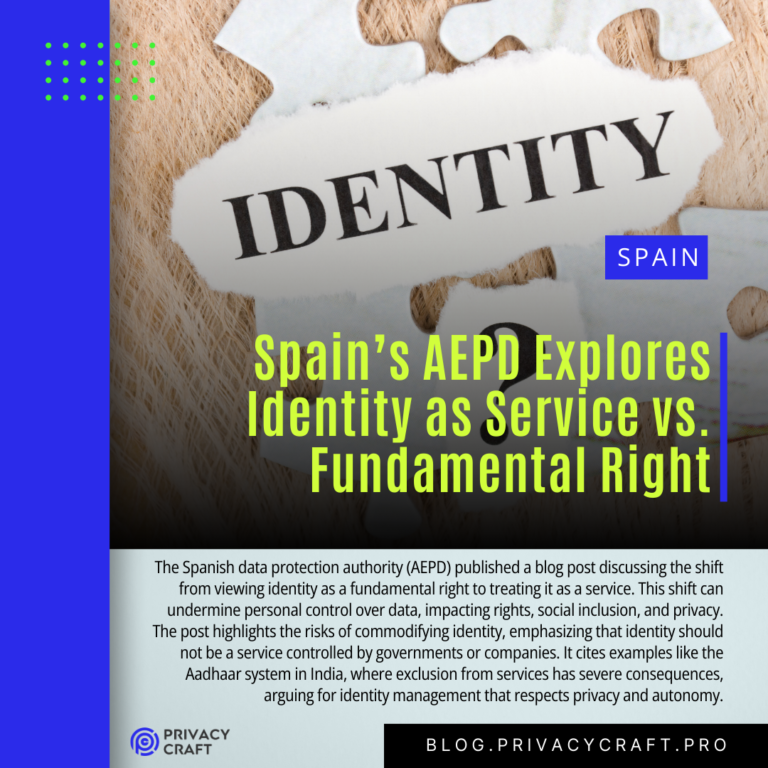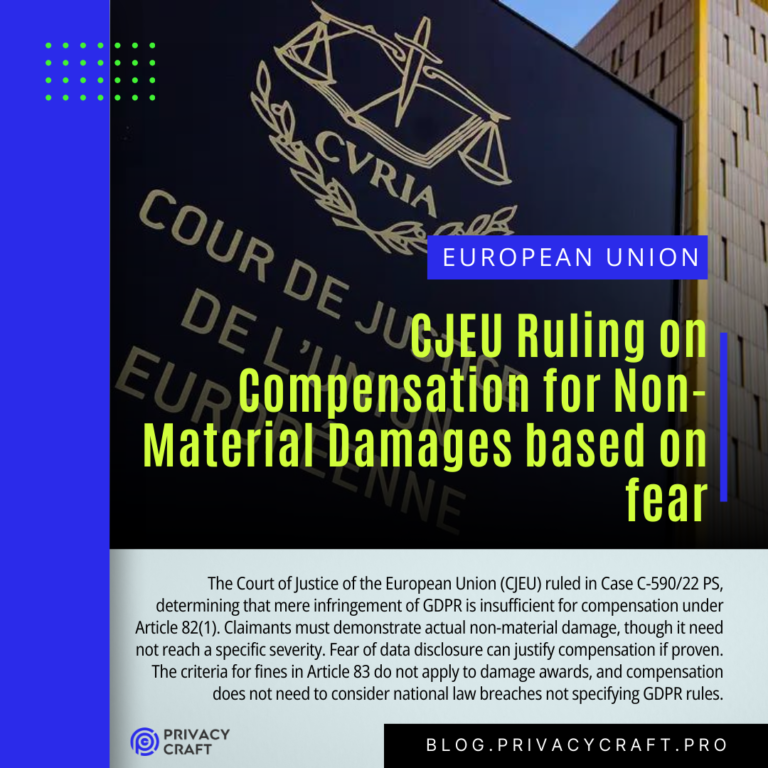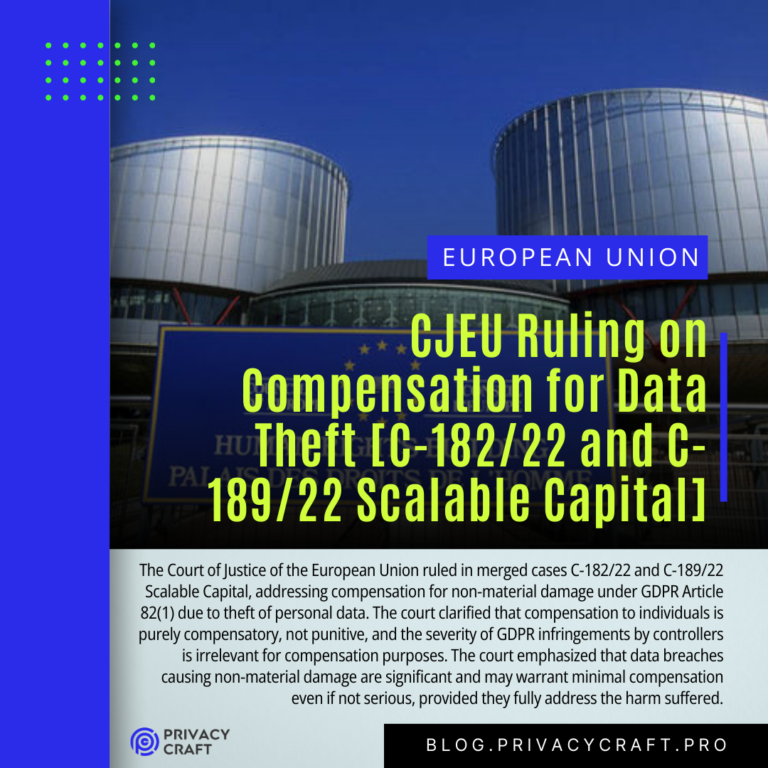Welcome to
The
PrivacyCraft
Blog
Latest Posts
The Nordic Data Protection Authorities, led by Denmark's Datatilsynet, released guidelines to protect...
The New York Governor signed the SAFE for Kids Act, targeting social media platforms' addictive feeds...
The Belgian Data Protection Authority published its 2023 annual report, highlighting a year of renewal...
The Spanish data protection authority (AEPD) published a blog post discussing the shift from viewing...
The Court of Justice of the European Union (CJEU) ruled in Case C-590/22 PS, determining that mere infringement...
The Court of Justice of the European Union ruled in merged cases C-182/22 and C-189/22 Scalable Capital,...
Subscribe to my updates
Get all posts delivered to you, so you don’t need to remember to check my blog.
You can unsubscribe at any time.
My newsletter can also include occasional marketing, such as information on my product launches and discounts.
Emails are sent through a processor located in the United States. Read more in the Privacy Notice.
